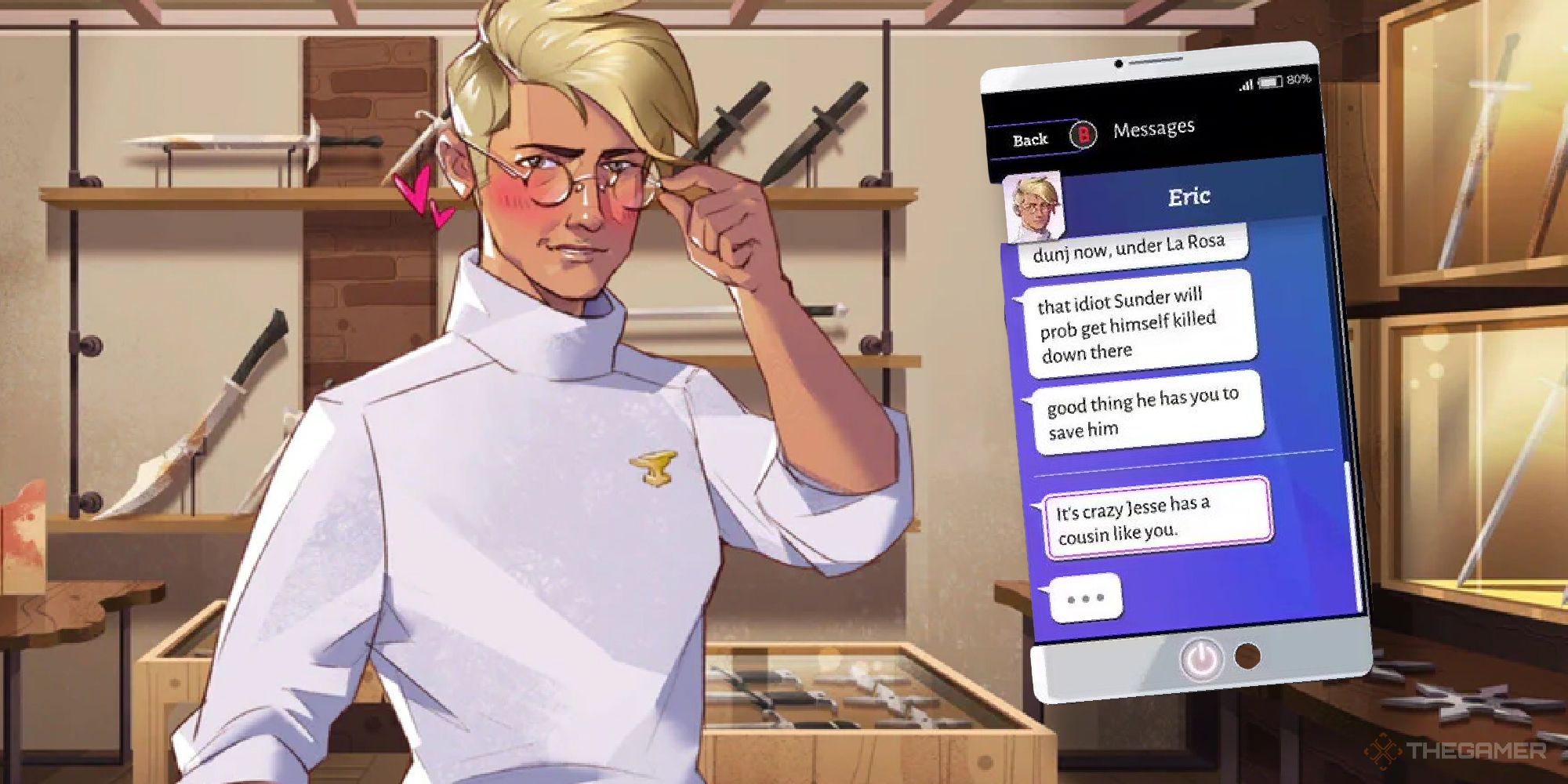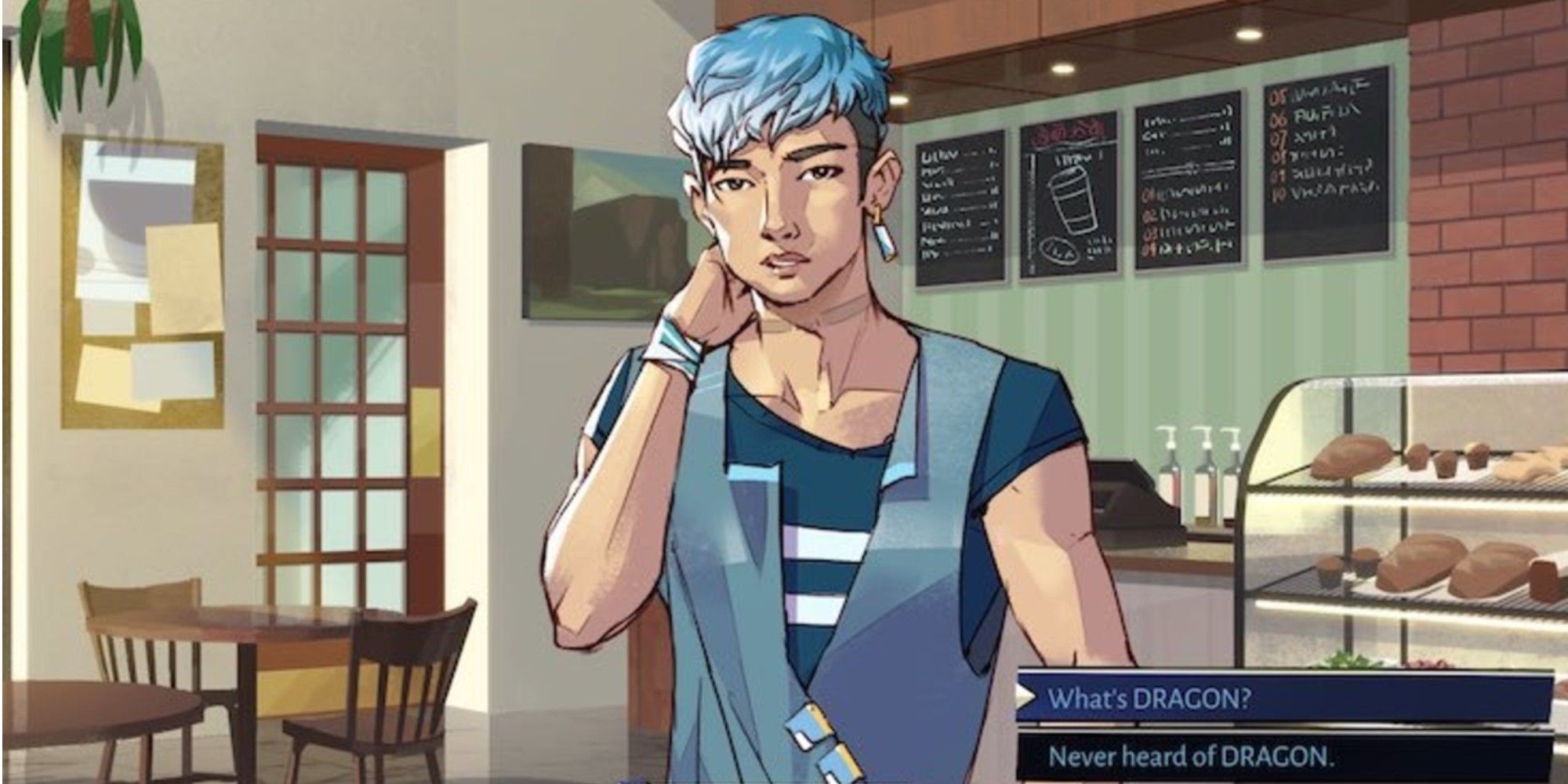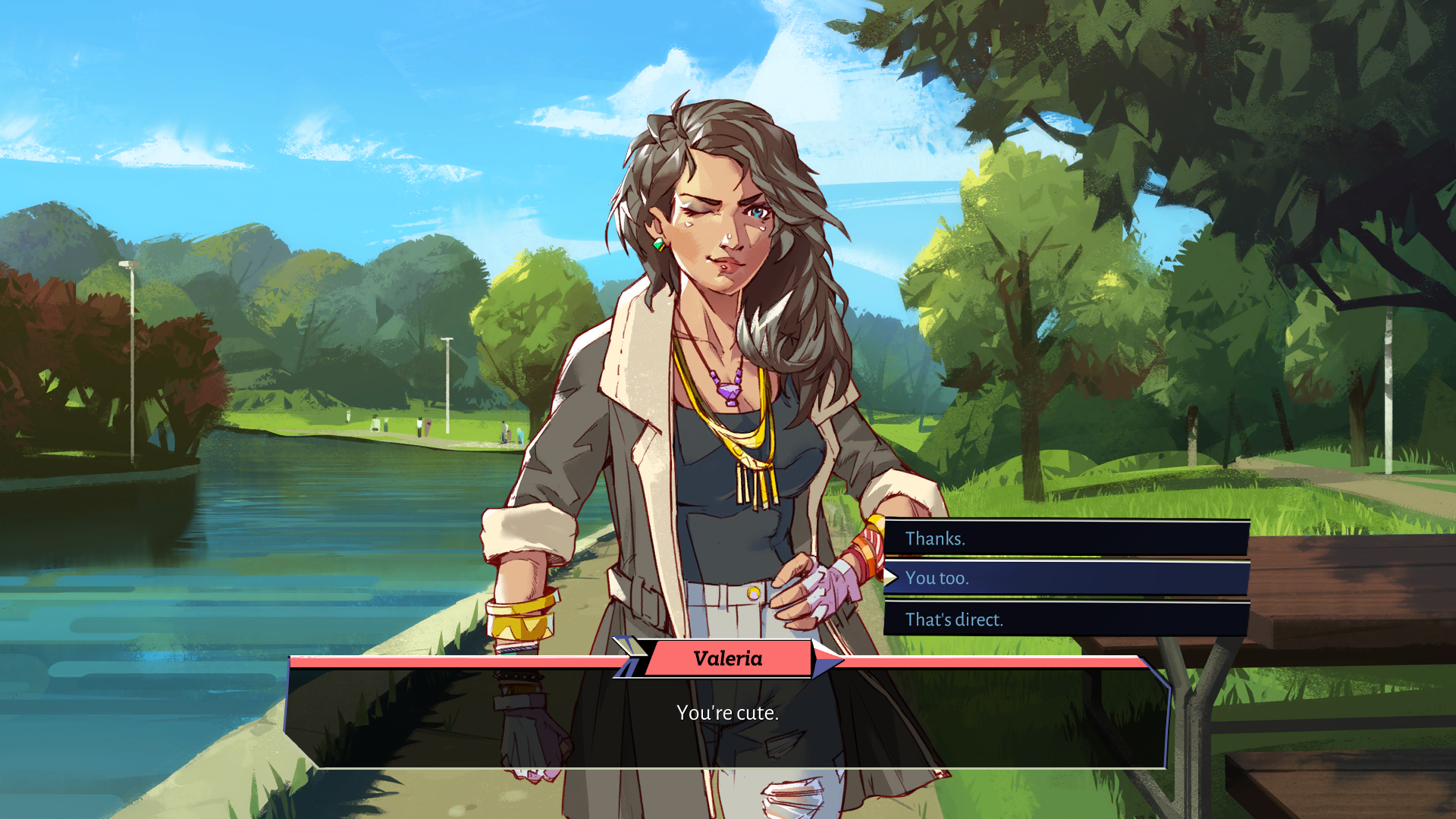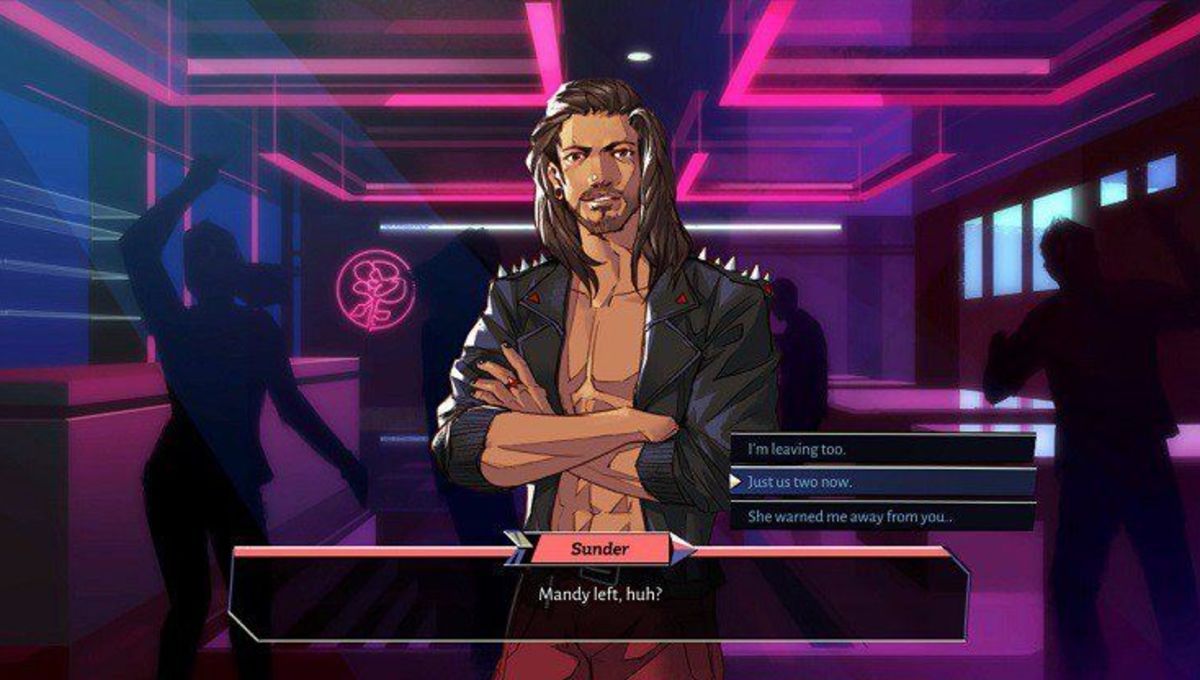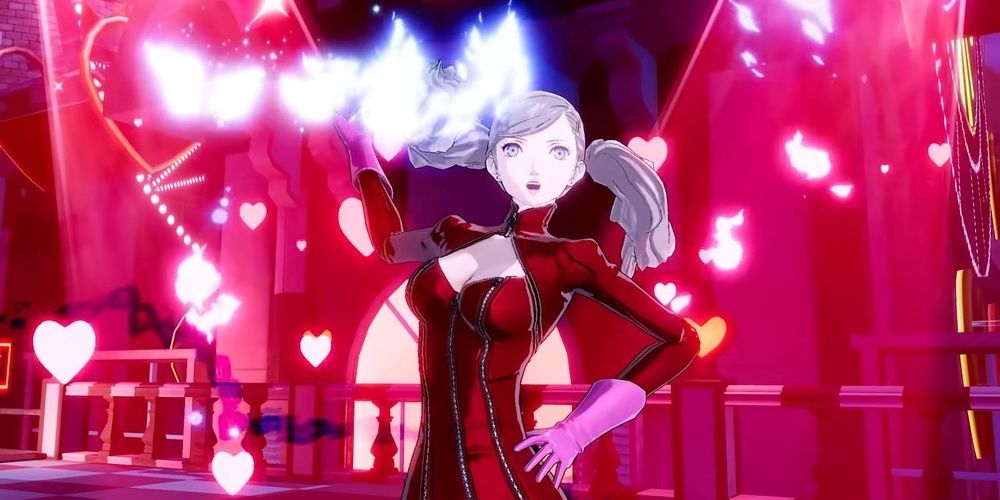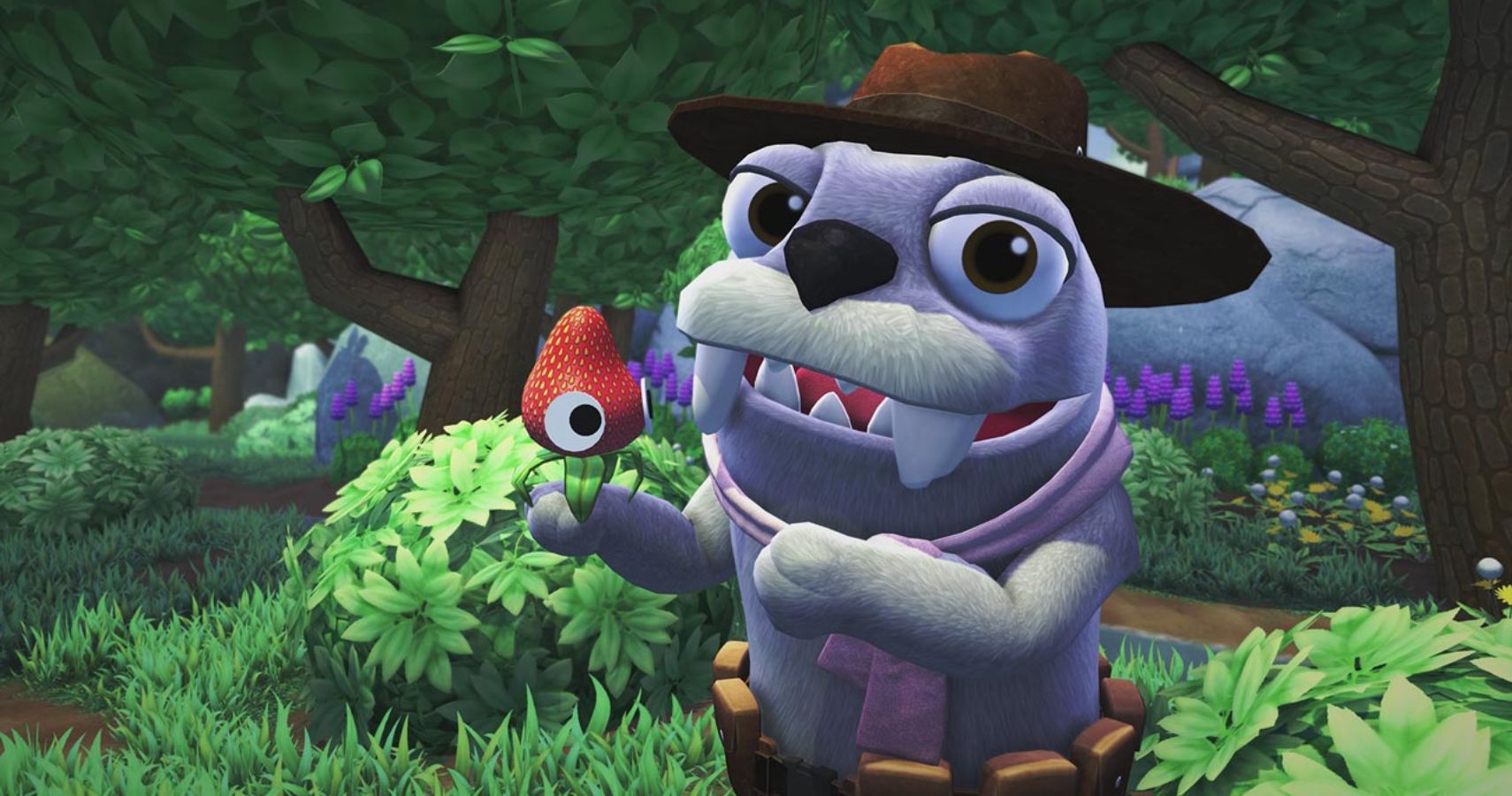T
Boyfriend Dungeon is a wholesome game. We’ll get to exactly what that means later. It’s also a game that comes with a trigger warning for stalking and manipulative behaviour, as well as flesh-eating vampires, killer Frankenstein creatures, dungeons full of monsters, copious sexual innuendos, and a gameplay loop designed around making love to swords. But remember - it’s wholesome.
The trigger warning is particularly interesting, as developer Kitfox Games announced shortly after the game launched that this warning would be updated. Through little fault of its own, Boyfriend Dungeon has wandered head first - hilt first? - into one of gaming’s most toxic discourses.
This article contains medium spoilers for Boyfriend Dungeon.
The debate around trigger warnings, accessibility, approachability, and wholesome content is the black sheep amongst gaming toxicity. Typically, it emanates most loudly from the ‘classic’ gaming fanbase, the group catered to in the ‘90s, ‘00s, and a significant portion of the ‘10s - straight white men. Not all straight white men, of course, but specifically the kind who think gaming is being ruined as it becomes more diverse and inclusive. The kind who object to ever playing as a woman, or indeed any character who is not a straight white male vessel for them to project themselves onto. The kind who think gaming peaked with Duke Nukem. The kind whose every reaction to stories of crunch, workplace harassment, or internal scandal is to complain about launch date delays.
This sort do not complain about trigger warnings, because they do not engage with them in the first place. Beyond complaining about the warning’s existence, this demographic gives no thought to the matter. They don’t engage with ‘wholesome games’ at all.
This group often knows they’re acting in bad faith. They want to troll. Either that, or they have such tight blinkers on that their rants barely escape their own echo chamber, with the exception of takes so ridiculous - remember Aloy’s sunburnt cheeks? - that they are scooped out of this chamber and held up to be mocked. The debates around trigger warnings are not like this. Most people are acting in good faith. They believe what they say. They have coherent arguments to back up their points. They believe not only that what they’re saying is correct, but that it’s bigger than themselves.
These are people used to uniting as one against the anti-SJW vitriol. The trigger warning debate divides us, making it far more toxic than the people who make it their business to be toxic in the first place.
Let’s get into Boyfriend Dungeon specifically. First off, Boyfriend Dungeon will inform you that you will periodically receive text messages from a character named ‘Mom’, and allows you to turn them off before even starting the game if you aren’t comfortable with it. These texts are inconsequential flavour text, and so having them removed doesn’t impact the game in any meaningful way.
On the one hand, I get it. Not everyone has a great relationship with their mother, and role playing loving texts from her isn’t everyone’s idea of fun. Some other people may have just lost their mother, and don’t wish to be reminded of her. But also, this character is not your mother. She’s a character in the game, the mother of the character you play as. My playing of the game isn’t impacted by the option being there, so I see no reason to complain, but if you have traumatic memories associated with a cousin named Jesse, a boyfriend named Isaac, or a girlfriend named Valeria, you’re shit out of luck. These characters are significantly more involved in the story than Mom, yet no option exists to skip them - and herein lies the issue.
The controversy around Boyfriend Dungeon is not the ‘Mom’ texts, but instead a character named Eric. You are set up on a date with him, but because he’s a) incredibly rude and b) not a sexy, sexy sword, it goes nowhere. Eric then begins to send you creepy texts that are typical of emotional manipulation designed to elicit sympathy, leaves you weird gifts even after you tell him not to - he stalks you and eventually tries to harm you. Eric has a trigger warning, but is not skippable. Some people, to various degrees, want him to be. This is the root of the problem.
Here’s the thing - Eric is skippable. You play any other game in the world, and Eric won’t be there. This sounds flippant, but it isn’t - this is the solution. The game warns you immediately that it contains stalking and manipulative behaviour. It then goes on to contain stalking and manipulative behaviour. People are protesting that they want to play Boyfriend Dungeon, just without Eric. But if that’s the case, you don’t want to play Boyfriend Dungeon. You want to play a version of Boyfriend Dungeon that only exists in your head.
Eric is integral to the game. While not a dateable weapon, Eric is a core component throughout the game, being an ex of many of your potential beaus, as well as one of just a handful of merchants. He’s also crucial to a central storyline. The devs could remove him, with lots of time, effort, and re-writing, but why should they? You aren’t warned that murder is part of the game, yet that happens, and could be argued as triggering. There are a couple of other characters who might reasonably be described as stalkers - though not towards you and to an apparently less extreme degree than Eric - and one of the dungeons focuses on a fear of intimacy. It’s an essential theme. Eric seems like someone from a minor subplot who then becomes a major character, but that’s how storytelling works. You are warned what the game is about from the get-go. You are given the option to play without Eric - that option is to not play at all.
There are, admittedly, a couple of complications here. Boyfriend Dungeon was a Kickstarter game, and this warning did not exist at the funding stage. There may be a handful of people who originally invested in the game who are now electing not to play because of the content. Those people have my sympathy, and I believe they are entitled to their money back. But they are not entitled to Kitfox making them an entirely new game tailored to their own personal desires.
People have also, quite reasonably, pointed out that the fear of stalking isn’t necessarily a fear of stalking itself, but the fear of what comes next. When stalking leads to action, it can take the form of assault, both physical and sexual. Both of those things are extremely traumatic, and it’s natural that conversations around them are therefore loaded and emotional. But Eric does not threaten to rape you. He stalks you and tries to manipulate you, and you are warned well in advance. If your fear of stalking is tied up in fear of trauma around sexual assault, then that’s an absolutely horrific thing for you to fear or have experienced. But Kitfox Games is very clear that its game touches on those themes. It gives you the option to opt out by playing anything else.
The reason why the conversation has become so toxic is because there has been an air that Kitfox Games is ‘not allowed’ to make games like this. The Last of Us Part 2 faced many controversies last year - yet none of them revolved around a lack of trigger warnings for death, bloodshed, and brutal bludgeoning. Likewise, no one complained earlier this year that Resident Evil Village was too scary, or that the game should have the option to switch off any scariness for people triggered by loud noises or jump scares.
Again, this sounds flippant, but it isn’t. It’s factual. Both of those games, and many others in the past couple of years, have contained content that would clearly be triggering or upsetting for some people. Persona 5, which includes grooming, sexual abuse, physical abuse, and a suicide attempt in its first five hours, is frequently held up as one of the best JRPGs of all time, and no one ever calls it out for a lack of trigger warnings, despite its early-game content.
Neither TLOU2, Resi, nor P5 are ‘wholesome games’, however. The problem is wholesome no longer means wholesome. Instead, it refers to indie games with a bright or colourful art style, often with queer themes. Aesthetic overrides meaning. People often say Pumped Up Kicks is a feel-good hit, because its catchy melody disguises the fact its lyrics depict a school shooting. Paramore’s two funkiest songs, Hard Times and Fake Happy, both deal with depression. Boyfriend Dungeon is similar, taking an ostensibly cutesy aesthetic and pushing it to explore darker territories.
The language Eric uses is similar to your typical blackpilled incel. Last week, a self-described blackpilled incel was responsible for Britain’s deadliest mass shooting in over a decade. It is crucial that art be allowed to tackle topics that are so prevalent in our culture.
But wholesome games aren’t seen as art - they’re seen as relaxing baths, as stress free toys, as an attempt to get away from the drudgery and trauma of our lives to smooch some sexy, sexy swords. That they ask challenging questions, that they explore dark subjects, is seen as breaking the rules. Harsher games, games played by the main toxic bunch of gamers, are allowed to grapple with grim subject matter. If your game is indie, colourful, or in some way queer, these questions aren’t welcome. The best answer to the regular toxic gamers still upset about Abby’s biceps is that gaming is for everyone - but we shouldn’t bastardise this into meaning every game has to be understanding of everyone’s triggers and offer a completely unique experience that’s been tailor-made for every single player.
Bugsnax faced similar yet quieter issues last year. Bugsnax is another wholesome game - its themes include addiction and unhealthy codependent relationships, all held together with lashings of body horror. But there’s a cute queer couple and a non-binary character, so it shouldn’t be allowed to explore themes like this, right? Bugsnax, for what it’s worth, has no trigger warning nor any ability to turn off any potentially triggering features, yet despite being arguably more viral than Boyfriend Dungeon, dodged this controversy almost entirely.
There are other debates mixed up in this conversation too. Content warning versus spoilers is a big one, but just have ‘click here to see a content warning’ and that’s job done. Others contend that Eric’s stalking is an accessibility issue; after all, the game is now inaccessible to those with a fear of stalking. But this is not as simple as adding subtitles, colourblind options, or remapping buttons. Some people get motion sickness in first person, but it is unreasonable to suggest that every game needs a third-person mode as part of basic accessibility.
It’s also true that quote-unquote wholesome games are more likely to attract marginalised audiences, who in turn are more likely to be appreciative of trigger warnings, to have reason to opt out of content involving mothers or vulnerable, toxic, or abusive relationships. But that doesn’t mean games like this should be banned from approaching issues that not everyone will be comfortable with. It’s telling that none of the debate around Eric has been around the character himself, or the way he has been depicted - merely his existence. It goes beyond accessibility and smacks of entitlement, the very same entitlement that straight white men have been using to toxify the medium for decades.
Developers should make every reasonable effort to make their games inclusive and accessible. Removing a key character is not a reasonable effort. It’s okay that some games aren’t for you.

